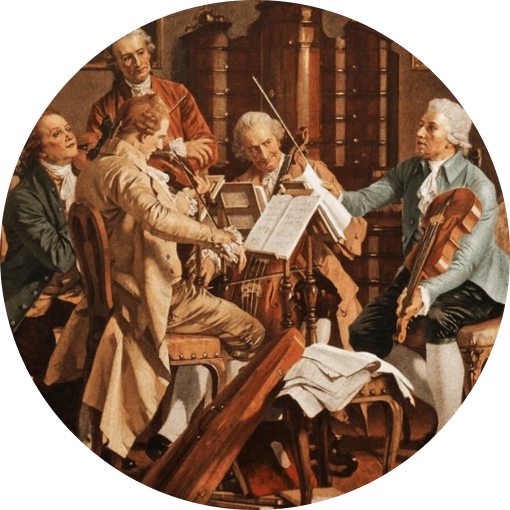The Baroque period, which ran from the beginning of the 17th century to the middle of the 18th century, was a time of musical innovation. The style was much richer and gave free rein to expression, emotion, and vocal virtuosity/coloratura. Compositions were rich in ornaments and contrasting elements, such as slow-fast movements, major and minor chords, and high and low sounds. New musical forms appeared: operas, oratorios, concertos, chamber music, as well as the birth of the orchestra. Polyphony, in which there are two or more lines or melodies being played at the same time, overtook monody. One of the best creations of this period was without a doubt the basso continuo, which involves a bass line played on one or several low-pitched instruments, such as the cello or double bass.
There are three composers who greatly influenced Baroque music: Johann Sebastian Bach, Antonio Vivaldi, and George Frideric Handel. Bach is the epitome of Baroque music. He mastered the art of counterpoint and harmony, and many of his works are part of classical music repertoire. Vivaldi was a violinist which is why his compositions often demonstrated his skills on the instrument. He also helped solidify the concerto as a musical form. For Baroque vocal music, Handel was one of the best composers (although he wrote many other styles of Baroque music). His vocal work Messiah is one of the grandest oratorios ever written.
Tomplay offers a wide selection of Baroque sheet music, which is available for all instruments and levels. Play Baroque sheet music such as Vivaldi's The Four Seasons or Pachelbel's Canon in D major. Tomplay provides orchestral accompaniments recorded by professional musicians, and many pieces are available in several levels of difficulty so everyone can give them a go.


